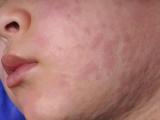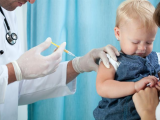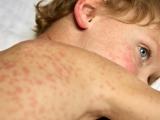May 24, 2010 (CIDRAP News) Delegates at the World Health Organization's (WHO's) World Health Assembly (WHA) wrapped up their 5-day meeting on May 21, taking aim at diseases such as childhood pneumonia and measles and addressing difficult issues involving equitable access to vaccines and medicines.
In an effort to meet its goal of reducing child mortality, the WHO delegates adopted a resolution to intensify efforts to prevent and treat pneumonia, the top killer of children younger than 5.
The group passed a resolution calling for policymakers, donors, and governments to speed access and delivery of pneumonia vaccines and treatments. The International Vaccine Access Center, based in Baltimore, in a May 21 press release said passage of the pneumonia resolution was a first for the for the assembly and called it an important step in the global fight against the disease.
In her closing statement, WHO Director-General Margaret Chan praised the group's progress on several health fronts, which included not only infectious disease topics but also other issues such as noncommunicable diseases, counterfeit medical products, health personnel recruiting, and reducing alcohol abuse.
"I witnessed firsthand your great desire to cooperate internationally, and with other sectors, in reaching these goals," Chan said, according to a text of her speech posted on the WHO's Web site. "The spirit I personally witnessed was one of great optimism, solidarity, and a can-do attitude."
In the wake of an increasing number of cross-border measles outbreaks, the WHA endorsed interim targets for eradicating the disease. The group acknowledged challenges in reducing the disease burden, which include competing public health priorities, weak immunization systems, a $298 million funding gap, and vaccinating hard-to-reach populations.
The pneumonia and measles measures are both aimed at addressing WHO Millenium Goal of reducing childhood mortality.
The group also passed a resolution to form a new working group to work on a new global intellectual property strategy in which the WHO would play a role in promoting needs-based research rather than market-based research as a means of funneling more disease-fighting treatments to developing countries.
Intellectual Property Watch, an independent blog that reports on intellectual property developments, said the previous group was bogged down by transparency issues and issued a report that didn't meet the expectations of some countries. Delegates asked the new group to report back to the World Health Assembly at its meeting in 2012.
Navigating complex virus-sharing issues was acknowledged as a vital part of pandemic preparedness, the WHO said in a meeting wrap-up. A global impasse over virus-sharing has been simmering since December 2006 when Indonesia, the nation hardest hit by the H5N1 virus, stopped sending samples to WHO collaborating centers to protest the high cost of vaccines that pharmaceutical companies have developed from the strains the country has shared.
WHA members passed a resolution requesting the WHO director-general to continue supporting the working group efforts and order any technical consultations and studies that are needed and agreeing that the group should report through the WHO's executive board at the 2011 WHA.
Destruction of variola (smallpox) virus stocks has been a topic at the past several WHA sessions. Though members heard reports on research, vaccine stockpiles, and biosafety inspections, the group still lacks a firm timeline for destruction.
See also:
May 21 WHO statement
May 21 Margaret Chan closing address
May 21 Intellectual Property Watch blog story
WHO notes from day 4 of the World Health Assembly
May 21 International Vaccine Access Center press release

















